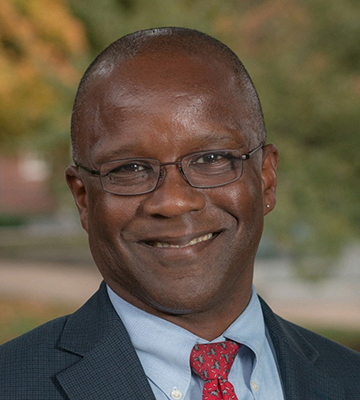Faculty & Affiliated Faculty


William Rodgers III, Ph.D.
Faculty & Affiliated FacultyFaculty Policy Fellow
Economics of Social Issues, Labor Economics
Biography
William M. Rodgers III is Vice President of the Federal Reserve Bank of St. Louis and Director of the bank's Institute for Economic Equity. Previously, he served as a Professor at the Bloustein School of Planning and Public Policy and Chief Economist at the Heldrich Center. Dr. Rodgers is a Faculty Policy Fellow at the Heldrich Center.
In spring 2006, he joined the graduate faculty at Rutgers' School of Management and Labor Relations. He is also a senior research affiliate of the National Poverty Center, University of Michigan. Prior to coming to Rutgers, he served as chief economist at the U.S. Department of Labor from 2000-2001, appointed to that position by Alexis Herman, U.S. Secretary of Labor. He was also the Frances L. and Edwin L. Cummings Professor of Economics at the College of William and Mary. Most recently, he was elected to the National Academy of Social Insurance.
Rodgers has served on Montgomery Township's planning board. At the state level, he served on Acting Governor Codey's pensions benefits review task force.
His research examines issues in labor economics and the economics of social problems. In recent years, he has focused his research on the impact of the 1990s economic expansion and now the current job loss recovery on the earnings and employment of Americans. Recently, he and co-author Richard Freeman (Harvard University) published a series of articles titled, "Jobless Recovery: Whatever Happened to the Great American Jobs Machine?" He has published articles in the Journal of Policy Analysis and Management, the Journal of Post Keynesian Economics, the Review of Black Political Economy, and Family Economics and Nutrition Review.
His most recent book, The Handbook on the Economics of Discrimination, published by Edgar Elgar was selected by Choice, the review journal of the American Library Association, as an "Oustanding Academic Book" for 2006.
His most recent research on the logistics chain is funded by the National Science Foundation. He recently completed a study of the state of New Jersey's minorities for the New Jersey State Employment and Training Commission and the Fund for New Jersey and wrote a piece for the National Urban League's State of Black America on why African Americans need to show greater interests in macroeconomic policy.
Rodgers' expertise is frequently called upon by journalists for articles in The New York Times, U.S.A. Today, Business Week, and other publications. He has been a guest on CNBC and CNN and many radio talk shows. His policy work includes testifying before the New Jersey Assembly Commerce and Economic Development Committee, New Jersey State Labor Committee, Joint Economic Committee, U.S. Congress, the Joint Sub-Committee Studying the Status and Needs of African American Males in Virginia, and serving as a consultant for the state of Virginia, the Joint Center for Economic and Political Studies, and the AFL-CIO.
Rodgers serves on numerous boards. He is Immediate Past President of the National Economic Association and a former co-chair of the Programs and Planning Committee of the United Way of Greater Williamsburg. In October 2004, he joined the Board of the United Way of Somerset County, and in spring 2007, Rodgers became vice-chairman of the Board. He is currently a member of the American Economic Association's Committee on the Status of Minorities in the Economics Profession and runs the Association's mentoring program that seeks to increase the number of minorities that obtain economic doctorates. Rodgers is a member of the National Urban League Institute for Opportunity and Equality Advisory Board. In spring 2007, President Marc Morial appointed Rodgers to the League's Council of Economic Advisors. He has served on the Congressional Black Caucus Foundation's Council of Academic Advisors, and the Economic Policy Institute's Research Advisory Board. He continues his service on the board of the University of Kentucky Center for Poverty Research Center.